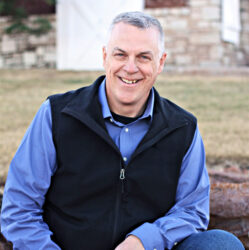Have you ever found yourself singing a song and thinking, “I recognize the music, but I don’t recognize these words?” Reading this post will hopefully help you answer and understand this question. This is the first of a two part blog as we strive to understand the importance of singing and learning the meter of a song.
A song typically begins as a poem, and then is paired with an appropriate tune. (However, it’s true that at times song writers have written the musical signature and then added the words.) In either case, a musician builds a song for presentation (or teaching). Whether the words come first or the notes, he or she will first determine the musical meter.
 Musical meter refers to the numbers of syllables per line of the verse of the song. This can be a excellent way to teach singing to younger children. In the song book edited by Alton Howard (Songs of Faith & Praise), this information is provided for the reader on page 1042. Yet in many cases, you will need to count the syllables for yourself. This tends to ring true especially in many of our older hymnals.
Musical meter refers to the numbers of syllables per line of the verse of the song. This can be a excellent way to teach singing to younger children. In the song book edited by Alton Howard (Songs of Faith & Praise), this information is provided for the reader on page 1042. Yet in many cases, you will need to count the syllables for yourself. This tends to ring true especially in many of our older hymnals.
To explore this further, let’s take a look at the first verse of the song When I Survey the Wondrous Cross. To find the meter for this song we would simply count the number of syllables in each line (hyphens have been added to make it easy to see the syllables):
When I sur-vey the won-drous cross
On which the Prince of Glor-y died
My rich-est gain I count but loss
And pour con-tempt on all my pride.
As we count the number of syllables within each line of this song, we see each line contains eight (8) syllables. Understanding this, we can see the meter of this old hymn by Issac Watts, is 88 88. An interesting point comes in knowing that some meters occur on such a regular basis that we have given them names. For example…
- Like the song noted above, 88 88 is referred to as Long Meter (abbreviated LM). Another example would be Father and Friend, Thy Light, Thy Love by John Bowring as well as Lord, Speak to Me by Frances R. Havergal.
-
Another popular meter for songs is Common Meter (abbreviated CM) and the meter for these songs is simply 86 86. Familiar songs for this meter would include; I’m Not Ashamed to Own My Lord and How Shall the Young Secure Their Hearts both written by Isaac Watts and/or How Sweet, How Heavenly by Joseph Swain.
-
66 86 is called Short Meter, and is abbreviated SM. Some songs you might recognize that are SM are, God Is the Fountain Whence by Benjamin Beddome, Rise Up, O Men of God by William Merrill and This Is My Father’s World by Maltbie D. Babcock.
There’s so much more to discuss and explore when it comes to understanding and appreciating meter with our songs. (As a matter of fact, try it out and you’ll see how fun it is to sing the words of old songs to ‘new’ tunes.) Come back again and we’ll consider another thought as we continue to better understand the meter of a song.



